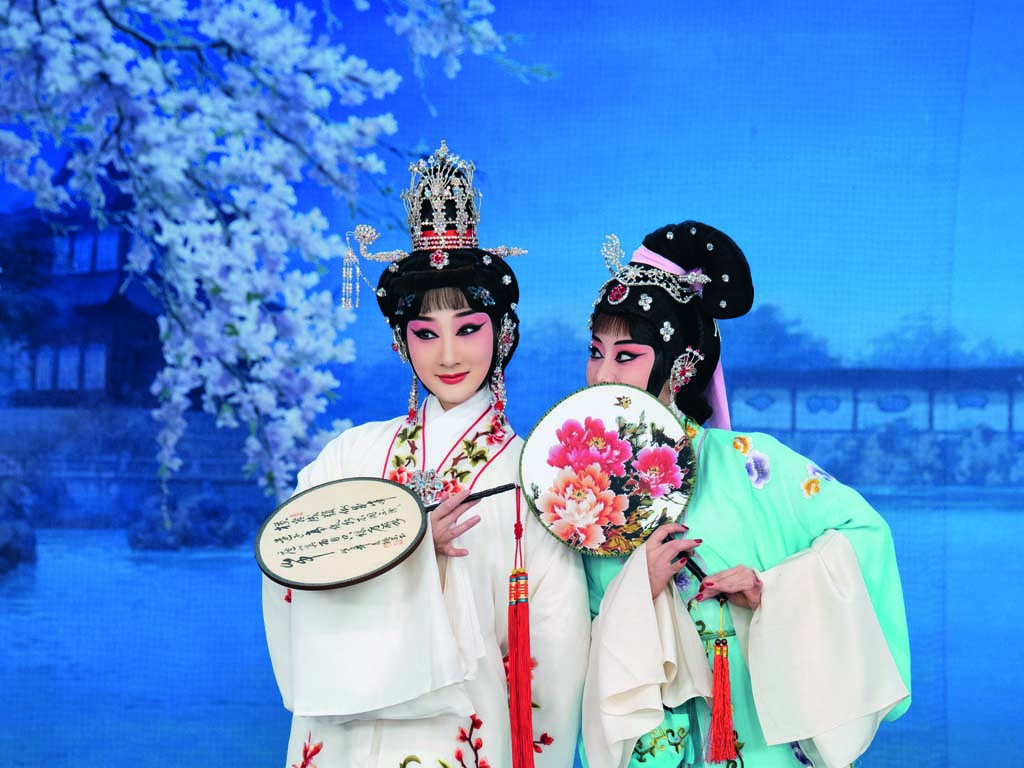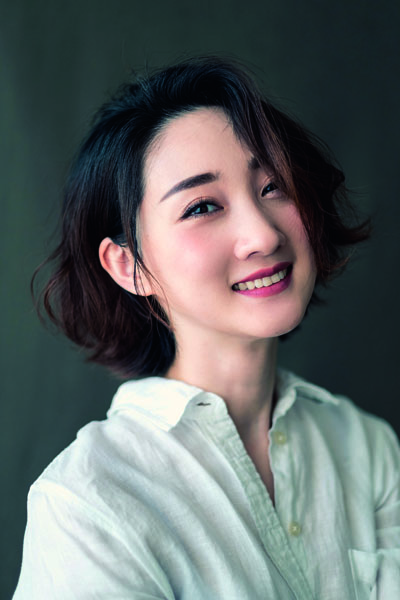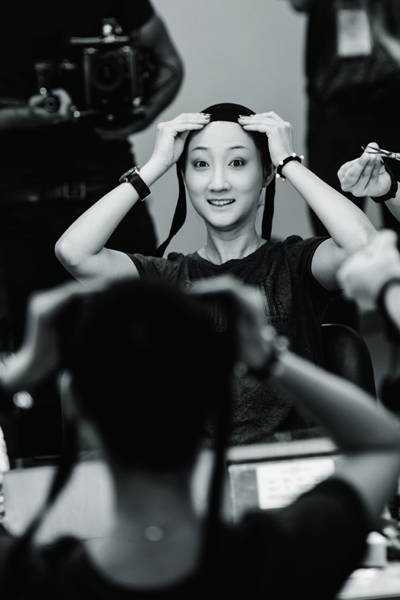Dou Xiaoxuan: Feeling the Charm

“She is definitely born for Peking Opera.”
At her kindergarten graduation ceremony, Dou Xiaoxuan performed an episode from the Peking Opera play Su San under Police Escort, and her performance was highly praised by her teachers. The then six-year-old girl had memorized all the moves and libretto and presented them neatly and gracefully on stage.
This kindergarten star later became a disciple of the renowned Peking Opera artist Du Jinfang. As a young performer, Dou has played quite a few distinct characters and deeply impressed her audiences.
Love Leads to Perseverance
Dou was born in Tianjin. When she was a child, the popularity of extracurricular classes was on the rise. Dou’s mom enrolled the then four-year-old millennial in a traditional Chinese opera class and a dancing class, hoping her girl would be fully exposed to art. At the age of 10, the talented girl was admitted to Tianjin Art School and started her journey into Peking Opera.
Although she came into contact with traditional Chinese opera at the age of four, Dou said that she only became interested in Peking Opera when she was about to graduate from secondary school. It was in university that she developed a real love for the art. During her college years, Dou’s understanding of traditional Chinese opera gradually grew, thanks to the lessons from many artists. “They just told me every detail about what it’s like on stage and about their lifetime performing experience,” said Dou. She gradually became more fascinated with the art.

Born in 1985, Dou Xiaoxuan is now a Peking Opera actress at the Jingju Theatre Company of Beijing. She graduated from the National Academy of Chinese Theatre Arts.
After graduation in 2006, Dou began to work for the Jingju Theatre Company of Beijing. In 2007, she became a disciple of Peking Opera master Du Jinfang. “Under the influence of my teacher, my understanding and views of the art have changed greatly,” said Dou. “I used to put most of my energy into the singing part and seldom went deep into stories. Master Du told me at the very beginning of my studies under her that I needed to understand and explore stories thoroughly instead of staying on the surface.”
Dou’s love for Peking Opera is the reason for her perseverance. Peking Opera performers live monotonously repetitive lives. For Dou, she shuttles between home, her workplace, and theaters almost every day. Peking Opera requires its performers to spend hours upon hours in tedious practice. Furthermore, whenever there is going to be a performance, actors and actresses need to learn it from a master and make detailed preparations. For those who have a number of upcoming performances, they hardly have any free time. “But when your singing on the stage brings down the house, you will be very proud of yourself and feel that it was all worthwhile,” said Dou.
Experimental Plays in Small Theaters
In 2015, the classic Peking Opera play Red Cliff was staged at China’s National Center for the Performing Arts after a period of revision, which depicts a historical battle from over 1,800 years ago. Dou took part in the performance and invited friends to watch the show. “They told me that they never expected such a wonderful experience—watching a show in a real theater,” Dou laughed.
As a millennial, Dou can relate to young people nowadays and understand their feelings towards Peking Opera or other genres of traditional Chinese opera. “It is frustrating, sometimes. Many young people just turn a cold shoulder to traditional Chinese opera for no reason. Some of them never watch a real performance, refusing the art simply because they feel the acting rhythms of such shows are too slow,” said Dou. In her opinion, rejection by young people is the major challenge that traditional Chinese opera is facing today.

As a performing art and live art, people need to walk into the theaters to see what really Peking Opera is. “Only theatergoers can feel the true atmosphere. It is a totally different experience from watching it on TV,” said Dou. “Peking Opera performers of my generation need to bring more people to the theaters. Then these audiences might change their mindset about Peking Opera or at least have a direct and first-hand experience of the art.”
Whether it is drama, cross-talk, storytelling, or traditional opera, small theaters seem to be more attractive to young people nowadays. As an experimental means to attract more young audiences, the Peking Opera small theater in the Jingju Theatre Company of Beijing has matured in recent years. “Many young people enjoy Peking Opera staged in small theaters. One show usually lasts about an hour and a half. The time span is acceptable for young people and the audience can interact with the actors and actresses.” In Dou’s view, performing Peking Opera in small theaters is quite challenging. “The time limit requires a simpler plot. Thus, in most circumstances, stories are told in a straightforward manner. But we are carefully doing that because we want our stories to be easy to understand and carry deep meanings at the same time.”
The situation of lacking young theatergoers has been improved in recent years. Activities such as public campaigns aimed at promoting traditional Chinese opera in schools, airing TV series, films, and variety shows including Peking Opera performers to perform some of the acts, and innovations in the form of traditional Chinese opera are backing the progress. “Nowadays, we see a lot of young fans backstage, some of whom were high school students,” said Dou. “Many children become interested in Peking Opera after they have one or two lessons about the art, so do their parents who take them to theaters.”